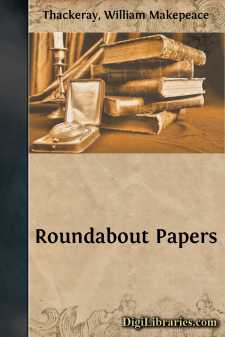Categories
- Antiques & Collectibles 13
- Architecture 36
- Art 48
- Bibles 22
- Biography & Autobiography 813
- Body, Mind & Spirit 142
- Business & Economics 28
- Children's Books 15
- Children's Fiction 12
- Computers 4
- Cooking 94
- Crafts & Hobbies 4
- Drama 346
- Education 46
- Family & Relationships 57
- Fiction 11829
- Games 19
- Gardening 17
- Health & Fitness 34
- History 1377
- House & Home 1
- Humor 147
- Juvenile Fiction 1873
- Juvenile Nonfiction 202
- Language Arts & Disciplines 88
- Law 16
- Literary Collections 686
- Literary Criticism 179
- Mathematics 13
- Medical 41
- Music 40
- Nature 179
- Non-Classifiable 1768
- Performing Arts 7
- Periodicals 1453
- Philosophy 64
- Photography 2
- Poetry 896
- Political Science 203
- Psychology 42
- Reference 154
- Religion 513
- Science 126
- Self-Help 84
- Social Science 81
- Sports & Recreation 34
- Study Aids 3
- Technology & Engineering 59
- Transportation 23
- Travel 463
- True Crime 29
Men's Wives
Description:
Excerpt
In a certain quiet and sequestered nook of the retired village of London—perhaps in the neighbourhood of Berkeley Square, or at any rate somewhere near Burlington Gardens—there was once a house of entertainment called the "Bootjack Hotel." Mr. Crump, the landlord, had, in the outset of life, performed the duties of Boots in some inn even more frequented than his own, and, far from being ashamed of his origin, as many persons are in the days of their prosperity, had thus solemnly recorded it over the hospitable gate of his hotel.
Crump married Miss Budge, so well known to the admirers of the festive dance on the other side of the water as Miss Delancy; and they had one daughter, named Morgiana, after that celebrated part in the "Forty Thieves" which Miss Budge performed with unbounded applause both at the "Surrey" and "The Wells." Mrs. Crump sat in a little bar, profusely ornamented with pictures of the dancers of all ages, from Hillisberg, Rose, Parisot, who plied the light fantastic toe in 1805, down to the Sylphides of our day. There was in the collection a charming portrait of herself, done by De Wilde; she was in the dress of Morgiana, and in the act of pouring, to very slow music, a quantity of boiling oil into one of the forty jars. In this sanctuary she sat, with black eyes, black hair, a purple face and a turban, and morning, noon, or night, as you went into the parlour of the hotel, there was Mrs. Crump taking tea (with a little something in it), looking at the fashions, or reading Cumberland's "British Theatre." The Sunday Times was her paper, for she voted the Dispatch, that journal which is taken in by most ladies of her profession, to be vulgar and Radical, and loved the theatrical gossip in which the other mentioned journal abounds.
The fact is, that the "Royal Bootjack," though a humble, was a very genteel house; and a very little persuasion would induce Mr. Crump, as he looked at his own door in the sun, to tell you that he had himself once drawn off with that very bootjack the top-boots of His Royal Highness the Prince of Wales and the first gentleman in Europe. While, then, the houses of entertainment in the neighbourhood were loud in their pretended Liberal politics, the "Bootjack" stuck to the good old Conservative line, and was only frequented by such persons as were of that way of thinking. There were two parlours, much accustomed, one for the gentlemen of the shoulder-knot, who came from the houses of their employers hard by; another for some "gents who used the 'ouse," as Mrs. Crump would say (Heaven bless her!) in her simple Cockniac dialect, and who formed a little club there.
I forgot to say that while Mrs. C. was sipping her eternal tea or washing up her endless blue china, you might often hear Miss Morgiana employed at the little red-silk cottage piano, singing, "Come where the haspens quiver," or "Bonny lad, march over hill and furrow," or "My art and lute," or any other popular piece of the day. And the dear girl sang with very considerable skill, too, for she had a fine loud voice, which, if not always in tune, made up for that defect by its great energy and activity; and Morgiana was not content with singing the mere tune, but gave every one of the roulades, flourishes, and ornaments as she heard them at the theatres by Mrs. Humby, Mrs. Waylett, or Madame Vestris. The girl had a fine black eye like her mamma, a grand enthusiasm for the stage, as every actor's child will have, and, if the truth must be known, had appeared many and many a time at the theatre in Catherine Street, in minor parts first, and then in Little Pickle, in Desdemona, in Rosina, and in Miss Foote's part where she used to dance: I have not the name to my hand, but think it is Davidson....












